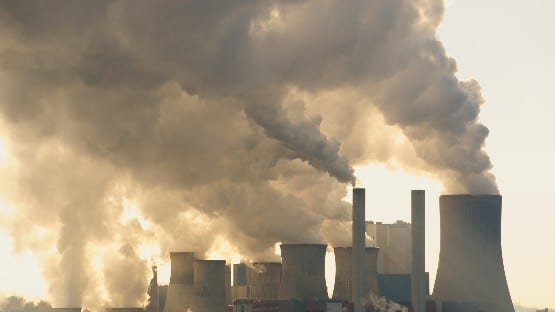
In July 2023, Virginia Congresswoman Jennifer McClellan led more than 50 House Democrats in calling on the EPA to swiftly finalize a protective MATS rule to limit harmful air pollution.
The Environmental Protection Agency announced a final rule today in which the organization seeks to further limit “the emission of non-mercury HAP metals from existing coal-fired power plants. EPA is also tightening the emission standard for mercury for existing lignite-fired power plants to a level that is aligned with the mercury standard that other coal-fired power plants have been achieving under the current MATS. EPA’s final rule strengthens emissions monitoring and compliance. In addition, EPA is revising the startup requirements in MATS to assure better emissions performance during startup.”
“The Biden-Harris Administration has demonstrated an unparalleled commitment to combating climate change, advancing environmental justice, and protecting vulnerable populations disproportionately impacted by long-standing injustices. The EPA’s final MATS Rule is another crucial step in those efforts and will have profound impacts on historically marginalized and underrepresented communities that bear the brunt of environmental degradation,” McClellan said today in response to the new rule.
According to McClellan, the new rule will enable America to “achieve better health outcomes by reducing toxic power plant emissions.”
“I am thrilled EPA heard our call and finalized strong standards. I commend Administrator Regan and the Biden-Harris Administration for their ongoing efforts to reduce harmful emissions and promote better health outcomes. I look forward to our continued collaboration as we work to advance environmental justice and protect the American people.”
The EPA’s Mercury and Air Toxics Standards (MATS) was initially established in 2012, but EPA Administrator Andrew Wheeler severely undermined the rule during the Trump Administration. The Biden-Harris Administration reversed the decisions while taking additional steps to strengthen air pollution regulations.
The House Sustainable Energy and Environment Coalition (SEEC) sent letters in March and July of 2023 urging EPA Administrator Michael S. Regan to finalize strong limits on carbon pollution from fossil fuel-fired power plants through EPA’s authority under Section 111 of the Clean Air Act.
Reps. Doris Matsui, Mike Quigley, and Paul Tonko and SEEC Members Reps. Kathy Castor and Mike Levin led a letter along with 95 colleagues last July.
“We are glad to see that EPA heeded our call to finalize a strong rule to cut pollution from dirty power plants and ensure that generations of Americans can breathe clean air and live on a habitable planet. Our power sector is the second largest source of climate pollution in our nation, driving poor air quality in local neighborhoods and accelerating the climate crisis for the entire planet. Time and time again, Congress has reaffirmed EPA’s authority and obligation under Section 111 of the Clean Air Act to protect Americans from sources of dangerous air pollution, including our power plants,” SEEC leaders said in a statement today.
The new final standards rule is an important part of SEEC’s efforts to halve America’s planet-warming pollution by 2030.
“Our most polluting power plants will utilize proven and readily available control technologies to upgrade their facilities to deliver cost-effective and clean electricity to the American people. As a result, these carbon emission standards will slash pollution by 83% below 2005 levels and deliver $370 billion in cumulative climate and health benefits over the next two decades, with almost no impact on electricity rates.”
The EPA’s new final rule, SEEC’s historic climate investments and the Biden Administration’s pollution standards “only further solidify our path to a clean energy future. While we would have preferred this rule include standards for existing gas power plants, we stand ready to work with the EPA to finalize a subsequent strong rule focused on incorporating a larger percentage of the existing gas fleet than the original proposed rule. Time is of the essence, and we look forward to finishing the job in cleaning up our power sector and closing the gap on our climate and environmental justice goals.”
The SEEC is a coalition of 98 members of the U.S. House of Representatives who have a goal of focused, active and effective work for advancing policies that address climate change, promote clean energy innovation and domestic manufacturing, develop renewable energy resources, create family-sustaining clean jobs, protect our nation’s air, water, and natural environment and promote environmental justice.










